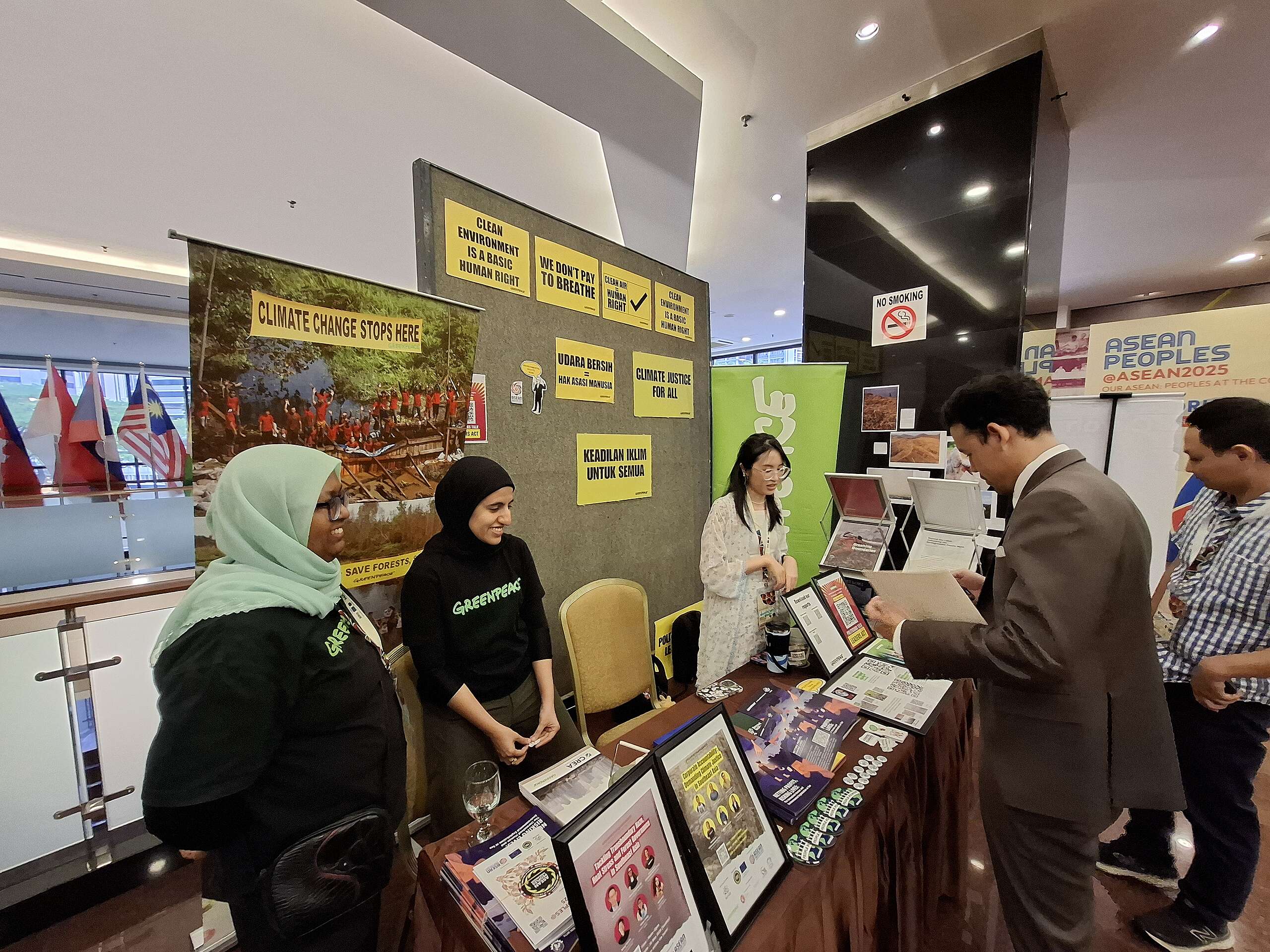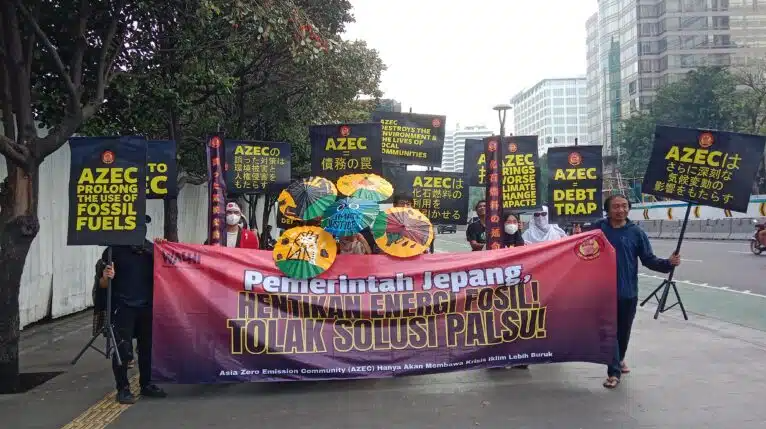FOR IMMEDIATE RELEASE
07 Dec, 2021
Kuala Lumpur – Ahead of the International Human Rights Day on 10th of December, a broad alliance of civil society organisations files a pioneering complaint at the Malaysian Human Rights Commission (SUHAKAM) as a proactive countermeasure to address the chronic and persistent haze pollution.
As the first-ever complaint filed in Malaysia to combine environmental issues with human rights, the CERAH Anti-Haze Action coalition is advocating for a public inquiry into the gaps in the governance of domestic and transboundary haze pollution with the aspired aim of getting systemic solutions for overcoming haze pollution and protecting our right to clean air.
In addition to reinforcing the rights of haze-impacted communities, the complaint also recommends the strengthening of domestic environmental laws and regulations, as well as strengthening human rights practices within business based on the United Nations framework [1].
Recommendations we seek (based on the complaint):
- Strengthening the recognition of environmental rights in Malaysia
- Strengthening Malaysia’s air quality governance
- Strengthening governance of transboundary haze pollution
- Strengthening Business and Human Rights in Malaysia
CERAH chairperson Dennis Chan said:
“What happens to people who continue to suffer from the after-effects for years to come? The haze in itself is not a nigh annual, mass smog event but an aggregate symptom of the broader issue of unchecked protected peatland burning, the continued encroachment into reserved forest areas compounded and driven by still rampant fossil fuel use in developing countries. The lodging of this complaint to SUHAKAM is an urgent, overdue, shared response to a lack of clear, meaningful solutions or legal pathways for common citizens to end man-made atmospheric pollution affecting the South East Asian region and countless millions of lives.”
Sahabat Alam Malaysia (SAM) President Meenakshi Raman said:
“The ASEAN Agreement on Transboundary Haze Pollution lacks enforcement mechanisms for dispute-resolution. It mainly promotes cooperation among the member states and expects each country to undertake efforts at preventing forest fires. Therefore, stronger national and regional legal instruments and pathways are clearly needed to protect the rights of Malaysians affected by the haze.”
Greenpeace Malaysia campaigner Heng Kiah Chun said:
“Clean air is a basic human right for all but Malaysians lack access to the information and basic justice required to enforce that right. So we have filed a complaint with our independent and impartial Human Rights Commission, asking them to recommend ways to empower haze-impacted individuals and communities to protect themselves and their families.”
“Deforestation, peatland destruction, and transboundary haze pollution has been happening in Sarawak for years. This is also why it is important that haze pollution and forest protection should be part of the main agenda in this year’s Sarawak state election.”
“International law says polluters must pay for the fatal impacts of haze, but this requires transparency and accountability at every level. Health experts say clean air and good ventilation are crucial to save the hundreds of thousands of lives threatened by haze pollution, just as clean air is essential to prevent the spread of the Covid-19 virus.”
Pertubuhan Pelindung Alam Malaysia (PEKA) president Puan Sri Sharifah Sabrina Bt Syed Akil said:
“We hope that the upcoming haze related human rights recommendations will at least be of assistance to those affected post-haze and hold those responsible accountable for compensation and to avoid haze-induced air pollution in the future. The unknown level of suffering to humans and wildlife has been going on for a long time due to man made haze. Other than finger pointing, the governments and authorities have not made much progress to provide a clear solution to the matter.”
Klima Action Malaysia (KAMY) representative Aroe Ajoeni said:
“I hope this initiative will be a start to effectively campaign against the transboundary haze crisis. This will be a relief to the people suffering in Malaysia and the locals who have dealt with this toxic and deadly haze for decades.”
Additional facts and info:
- According to the World Health Organization (WHO), air pollution is now one of the biggest environmental threats to human life, leading to seven million premature deaths a year [2].
- In a study by the European Respiratory review, air pollution may be linked to an increase in COVID-19 severity and lethality through its impact on chronic diseases, such as cardiopulmonary diseases and diabetes [3].
- From 2010 to 2018 (excluding 2015), Malaysia’s annual average PM10 concentration has been higher than the WHO’s standard of 20 µg/m3 [4].
- Haze led to rapid rise in asthma and conjunctivitis cases nationwide, said the Malaysian Health Ministry in 2019 [5].
- During the 2019 haze, nearly 2,500 schools were closed across Malaysia, affecting at least 1.7 million pupils [6].
This press release was prepared and endorsed by members of the CERAH Anti-Haze Action coalition which includes:
CERAH – Anti Haze Action
Greenpeace Malaysia
Sahabat Alam Malaysia (SAM)
Stop Open Burning in Johan Setia
Klima Action Malaysia (KAMY)
Pertubuhan Pelindung Khazanah Alam Malaysia (PEKA Malaysia)
Suara Rakyat Malaysia (SUARAM)
Pertubuhan Alam Sekitar Sejahtera Malaysia (GRASS Malaysia)
Environmental Protection Society Malaysia (EPSM)
Jaringan Ekologi Dan Iklim (JEDI)
Persatuan Pengundi Muda (Undi 18 – MyHutan)
Global Environment Centre (GEC)
DOWNLOAD THE FULL COMPLAINT HERE
Notes:
[1]The United Nations ‘Protect, Respect and Remedy’ Framework, in the Guiding Principles on Business and Human Rights.
https://www.ohchr.org/documents/publications/guidingprinciplesbusinesshr_en.pdf
[2]https://www.dw.com/en/who-air-pollution-causes-7-million-premature-deaths-a-year/a-59264198
[3]European Respiratory review on ‘The impact of outdoor air pollution on COVID-19: a review of evidence from in vitro, animal, and human studies.’
https://err.ersjournals.com/content/30/159/200242
[4]UNICEF Climate Change 2021 report
https://www.unicef.org/malaysia/media/2201/file/Climate_Change_2021_report%3A_Summary_%28Eng%29.pdf
[5]https://www.nst.com.my/news/nation/2019/09/522742/spike-asthma-conjunctivitis-cases-nationwide-due-haze
[6]https://www.channelnewsasia.com/asia/haze-malaysia-indonesia-schools-shut-air-quality-1316081
Contact:
Yvonne Nathan, Greenpeace Malaysia | [email protected]
Heng Kiah Chun, Greenpeace Malaysia Campaigner | [email protected]




Discussion
Rolex Submariner, представленная в 1953 году стала первой дайверской моделью, выдерживающими глубину до 100 метров . Модель имеет 60-минутную шкалу, Triplock-заводную головку, обеспечивающие безопасность даже в экстремальных условиях. Дизайн включает хромалитовый циферблат , стальной корпус Oystersteel, подчеркивающие функциональность . rolex-submariner-shop.ru Механизм с запасом хода до 70 часов сочетается с перманентной работой, что делает их надежным спутником для активного образа жизни. За десятилетия Submariner стал символом часового искусства, оцениваемым как коллекционеры .